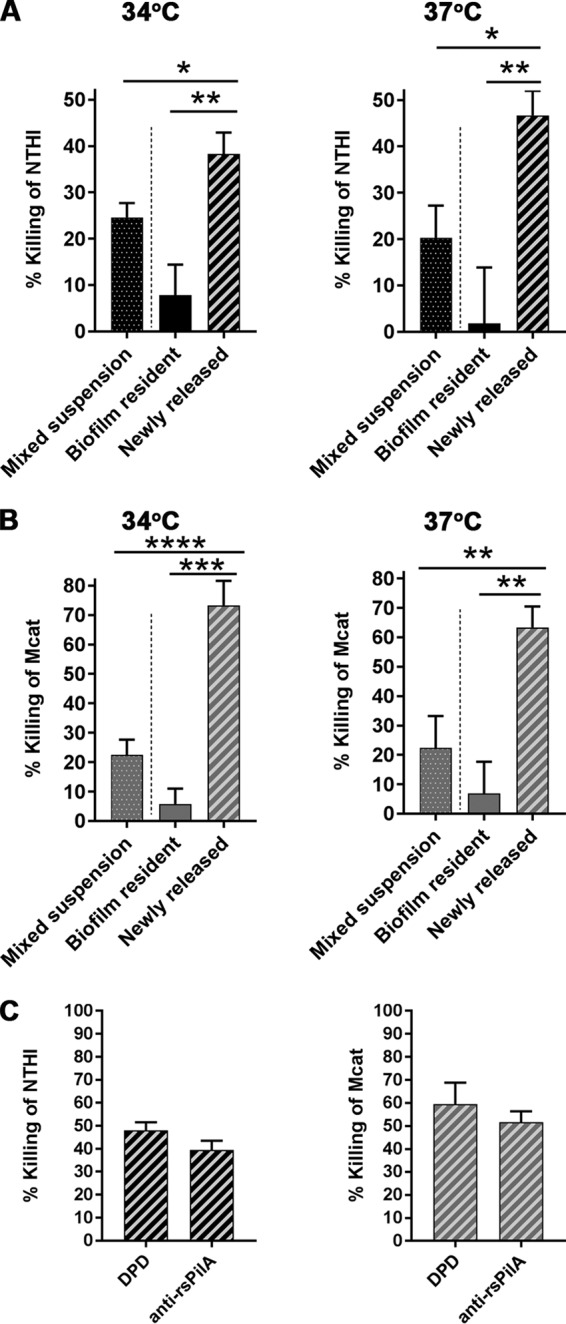FIG 8.

Newly released NTHI or Mcat was highly sensitive to antibiotics that inhibit protein synthesis. Percent killing of NTHI or Mcat from mixed bacterial suspensions (dotted bars), biofilm-resident bacteria (solid bars), or newly released bacteria (striped bars) exposed to antibiotics for 2 h at 34°C or 37°C. (A) Newly released NTHI was significantly more sensitive to 7.5/37.5 µg trimethoprim-sulfamethoxazole per ml than either biofilm-resident NTHI or NTHI in a mixed suspension, regardless of temperature. (B) Newly released Mcat was significantly more sensitive to 20 µg clarithromycin per ml than either biofilm-resident Mcat or planktonic Mcat in a mixed suspension, at 34°C or 37°C. (C) NTHI (black striped bars) and Mcat (gray striped bars) dispersed from a dual-species biofilm by DPD versus anti-rsPilA were equally sensitive to killing by trimethoprim-sulfamethoxazole at 7.5/37.5 µg/ml (NTHI) or clarithromycin at 20 µg/ml (Mcat). Data represent mean ± SEM from 3 experiments performed in duplicate. Statistical significance was determined by one-way analysis of variance with the Holm-Sidak correction. *, P ≤ 0.05; **, P ≤ 0.01; ***, P ≤ 0.001; ****, P ≤ 0.0001. These data suggested that the dispersal process mediated by anti-rsPilA enhanced the sensitivity of both NTHI and Mcat to killing as mediated via inhibition of protein synthesis.
